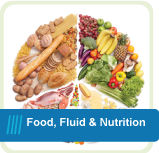Food, Fluid and Nutrition
Key Message

 High
quality nutritional care is vital for the health and well-being of
patients and clients in all service settings. NHS Scotland is
committed to providing good nutritional care to service users as
part of its drive to deliver person-centred, safe and effective
care.
High
quality nutritional care is vital for the health and well-being of
patients and clients in all service settings. NHS Scotland is
committed to providing good nutritional care to service users as
part of its drive to deliver person-centred, safe and effective
care.
Focusing on just 2 elements of the "Food, Fluid & Nutrition" agenda, the first is the recognition that food is treatment, as malnutrition means for example that wounds will not heal, or the service user becomes immobile and unable to care for themselves and may have to be admitted to hospital or into care. The second element in the "Food, Fluid & Nutrition" agenda is healthy eating as part of lifestyle and being empathetic to personal circumstances when delivering a health promotion message.
What does this mean for the Effective Practitioner?
Nutrition is core to the work of all practitioners. You need to recognise risks of malnutrition and be aware of everything that can impact on the nutritional status of people under your care. This can mean for example people's ability to cook, their mobility, their clinical condition, their financial situation, access to shops, and any religious or cultural needs.
Practitioners should also be aware of healthy eating and lifestyle choices (e.g. alcohol, smoking, exercise) that have an impact on the long term care of service users. You are encouraged to provide an empathetic and consistent health promotion message during each intervention with a patient/client.
![]() You can download a copy of
the Food, Fluid
and Nutrition learning activities.
You can download a copy of
the Food, Fluid
and Nutrition learning activities.
Reflection
Remember, recording your reflections is an important part of the learning process. Take time to structure your thoughts, feelings and any future actions on one the forms available in the Reflective Practice section. Click here to visit the page.
In your reflections you could also consider how your learning relates to the Facilitation of Learning, Leadership and Evidence, Research and Development pillars of practice.
Return to top
